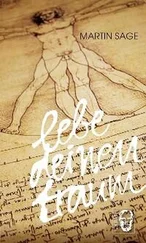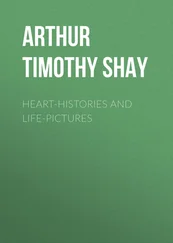Harriet Martineau - Eastern Life
Здесь есть возможность читать онлайн «Harriet Martineau - Eastern Life» — ознакомительный отрывок электронной книги совершенно бесплатно, а после прочтения отрывка купить полную версию. В некоторых случаях можно слушать аудио, скачать через торрент в формате fb2 и присутствует краткое содержание. Жанр: unrecognised, на английском языке. Описание произведения, (предисловие) а так же отзывы посетителей доступны на портале библиотеки ЛибКат.
- Название:Eastern Life
- Автор:
- Жанр:
- Год:неизвестен
- ISBN:нет данных
- Рейтинг книги:5 / 5. Голосов: 1
-
Избранное:Добавить в избранное
- Отзывы:
-
Ваша оценка:
- 100
- 1
- 2
- 3
- 4
- 5
Eastern Life: краткое содержание, описание и аннотация
Предлагаем к чтению аннотацию, описание, краткое содержание или предисловие (зависит от того, что написал сам автор книги «Eastern Life»). Если вы не нашли необходимую информацию о книге — напишите в комментариях, мы постараемся отыскать её.
Eastern Life — читать онлайн ознакомительный отрывок
Ниже представлен текст книги, разбитый по страницам. Система сохранения места последней прочитанной страницы, позволяет с удобством читать онлайн бесплатно книгу «Eastern Life», без необходимости каждый раз заново искать на чём Вы остановились. Поставьте закладку, и сможете в любой момент перейти на страницу, на которой закончили чтение.
Интервал:
Закладка:
Our object, like that of Egyptian travellers generally, was to sail up the river as fast as the wind would carry us, seeing by the way only as much as would not interfere with the progress of the boat. It was the season when the north wind prevailed; and this advantage was not to be trifled with in a voyage of a thousand miles, certain as we were of the help of the current to bring us back. We were, therefore, to explore no pyramids or temples on our way up; and to see only so much of the country as we could get a glimpse of on occasion of the failure of the wind, or other accidental delays. To this there was no objection in our minds; for we found at once that in doing up the Nile in any manner we should meet with as much novelty and interest as we could bear. The face of the country was enough at one time. To have explored its monuments immediately would have been too much. Moreover, there was great advantage in going up quickly while the river was yet high enough to afford some view of the country. In returning, we found such a change produced by the sinking of the waters only a few feet, that we felt that travellers going up late in the season can hardly be said to have seen the country from the river. At all times, the view of the interior from the Nile must be very imperfect, and quite insufficient to justify any decision against the beauty of the great valley. This arises from the singular structure of the country. Everywhere else, where a river flows through the centre of a valley, the land either slopes from the base of the hill down to the river, or it is level. In Egypt, on the contrary, the land rises from the mountains up to the banks of the Nile: and where, as usually happens, the banks are higher than the eye of the spectator on the deck of his boat, all view of the interior, as far as the hills, is precluded. He sees nothing but the towns, villages, and palm-groves on the banks, and the mountains on the horizon. My attention had been directed upon this point before I went, by the complaints of some readers of Eastern travels, that, after all their reading, they knew no more what the Egyptian valley looked like than if it had never been visited. As this failure of description appeared to regard Egypt alone, there must be some peculiar cause for it; and thus we found it. The remedy was, of course, to go ashore as often as possible, and to mount every practicable eminence. I found this so delightful, and every wide view that I obtained included so much that was wonderful and beautiful, that mounting eminences became an earnest pursuit with me. I carried compass and note-book, and noted down what I saw, from eminence to eminence, along the whole valley, from Cairo to the Second Cataract. Sometimes I looked abroad from the top of a pylon; sometimes from a rock on the banks; sometimes from a sandy ridge of the desert; sometimes from a green declivity of the interior; once from a mountain above Thebes, and once from the summit of the Great Pyramid. My conclusion is, that I differ entirely from those who complain of the sameness of the aspect of the country. The constituent features of the landscape may be more limited in number than in other tracts of country of a thousand miles: but they are so grand and so beautiful, so strange, and brought together in such endless diversity, that I cannot conceive that anyone who has really seen the country can complain of its monotony. Each panoramic survey that I made is now as distinct in my mind as the images I retain of Niagara, Iona, Salisbury Plain, the Vaiais, and Lake Garda.
Our opportunities of going ashore were not few, even at the beginning of our voyage, when the wind was fair, and we sailed on, almost continuously, for three days. In the early mornings, one of the crew was sent for milk, and he was to be taken up at a point further on. And if, towards night, the Rais feared a rock, or a windy reach ahead, he would moor at sunset; and this allowed us nearly an hour before it was dark enough for us to mind the howling jackals. When the wind ceased to befriend us, the crew had to track almost all day, following the bends of the river; and we could either follow these also, or strike across the fields to some distant point of the bank. And when on board, there was so much to be seen on the ordinary banks that I was rarely in the cabin. Before breakfast, I was walking the deck. After breakfast, I was sewing, reading, or writing, or idling on deck, under the shade of the awning. After dinner, we all came out eagerly, to enjoy the last hour of sunshine, and the glories of the sunset and the after-glow, and the rising of the moon and constellations. And sorry was I every night when it was ten o'clock, and I must go under a lower roof than that of the dazzling heavens. All these hours of our first days had their ample amusement from what we saw on the banks alone, till we could penetrate further.
There were the pranks of the crew, whose oddities were unceasing, and particularly rich in the early morning. Then it was that they mimicked whatever they saw us do – sometimes for the joke, but as often with the utmost seriousness. I sometimes thought that they took certain of our practices for religious exercises. The solemnity with which one or another tried to walk the deck rapidly, to dance, and to skip the rope, looked like this. The poor fellow who laid hands on the skipping-rope paid (he probably thought) the penalty of his impiety. At the first attempt, down he came, flat on his face. If Mr. E. looked through his glass, some Ibraheem or Mustafa would snatch up an oar for a telescope, and see marvellous things in the plain. If, in the heat, either of the gentlemen nodded over his book, half the crew would go to sleep instantly, peeping every moment to see the effect. – Then, there were the veiled women coming down to the river to fill their water-pots. Or the men, at prayer-time, performing their ablutions and prostrations. And there was the pretty sight of the preparation of the drying banks for the new crop – the hoeing with the short, heavy antique hoe. And the harrow, drawn by a camel, would appear on the ridge of the bank. And the working of the Shadoofs 6was perpetual, and always interesting. Those who know what the shadoof is like, may conceive the picture of its working: the almost naked Arabs, usually in pairs, lowering and raising their skin buckets by the long lever overhead, and emptying them into the trough beside them, with an observance of time as regular as in their singing. Where the bank is high, there is another pair of shadoofs at work above and behind: and sometimes a third, before the water can be sent flowing in its little channels through the fields. – Then, there were the endless manoeuvres of innumerable birds, about the islets and rocks: and a buffalo, here and there, swimming from bank to bank, and finding it, at last, no easy matter to gain the land. Then, there was the ferryboat, with its ragged sail, and its motley freight of turbaned men, veiled women, naked children, brown sheep, frightened asses, and imperturbable buffalo. Then, there were the long palisades of sugar-canes edging the banks; or the steep slopes, all soft and bright with the springing wheat or the bristling lupins. Then, there were the villages, with their somewhat pyramidal houses, their clouds of pigeons, and their shelter of palms: or, here and there, a town, with its minarets rising out of its cincture of acacia. And it was not long before we found our sight sharpened to discern holes in the rocks, far or near – holes so squared at the entrance as to hint of sculpture or painting within. And then, as the evening drew on, there was the sinking of the sun, and the coming out of the colours which had been discharged by the glare in the middle of the day. The vast and dreary and hazy Arabian desert became yellow, melting into the purple hills; the muddy waters took a lilac hue; and the shadows of the sharp-cut banks were as blue as the central sky. As for the moon, we could, for the first time in our lives, see her the first night – the slenderest thread of light, of cup-like form, visible for a few minutes after sunset: the old moon being so clearly marked as to be seen by itself after the radiant rim was gone. I have seen it behind a palm, or resting on the ridge of a mountain like a copper ball. And when the fuller moon came up from the east, and I, forgetting the clearness of the sky, have been struck by the sudden dimness, and have looked up to watch her passing behind a cloud, it was delicious to see, instead of any cloud, the fronds of a palm waving upon her disc. One night, I saw an appearance perfectly new to me. No object was perceptible on the high black eastern bank, above and behind which hung the moon: but in her golden track on the dimpled waters were the shadows of palms, single and in clusters, passing over swiftly, – »authentic tidings of invisible things.« And then, there was the rising of Orion. I have said that the constellations were less conspicuous than at home, from the universal brilliancy of the sky; but Orion shone forth, night by night, till the punctual and radiant apparition became almost oppressive to the watching sense. I came at last to know his first star as it rose clear out of the bank. He never issued whole from a haze on the horizon, as at home. As each star rose, it dropped a duplicate upon the surface of the still waters; and on a calm night, it was hard to say which Orion was the brightest. – And how different was the wind from our cloud-laden winds in England! Except that it carried us on, I did not like wind in Egypt. The palms, bowed from their graceful height, and bent all one way, are as ugly as trees can be: and the dust flies in clouds, looking like smoke or haze on land, and settling on our faces, even in the middle of the stream. Though called sand, it is, for the most part, mere dust from the limestone ranges, forming mud when moistened. The wind served, however, to show us a sand-pillar now and then, like a column of smoke moving slowly along the ground. On this second day of our voyage, when we were approaching Benisooeef, the wind made ugly what on a calm evening would have been lovely. A solitary house, in the midst of a slip of alluvial land, all blown upon with dust, looked to us the most dreary of dwellings. But the lateen sails on the river were a pretty feature, – one or two at a time, winding in and out with the bends of the stream. We saw one before us near Benisooeef, this day. It proved to be our Scotch friend's. Our boat beat his in a strong wind; and we swept past in good style, – the gentlemen uncapping and bowing; the ladies waving their handkerchiefs. I had no idea that the racing spirit had entered into them, till one of the ladies told me, the next time we met, »We were so mortified when you passed us!«
Читать дальшеИнтервал:
Закладка:
Похожие книги на «Eastern Life»
Представляем Вашему вниманию похожие книги на «Eastern Life» списком для выбора. Мы отобрали схожую по названию и смыслу литературу в надежде предоставить читателям больше вариантов отыскать новые, интересные, ещё непрочитанные произведения.
Обсуждение, отзывы о книге «Eastern Life» и просто собственные мнения читателей. Оставьте ваши комментарии, напишите, что Вы думаете о произведении, его смысле или главных героях. Укажите что конкретно понравилось, а что нет, и почему Вы так считаете.












